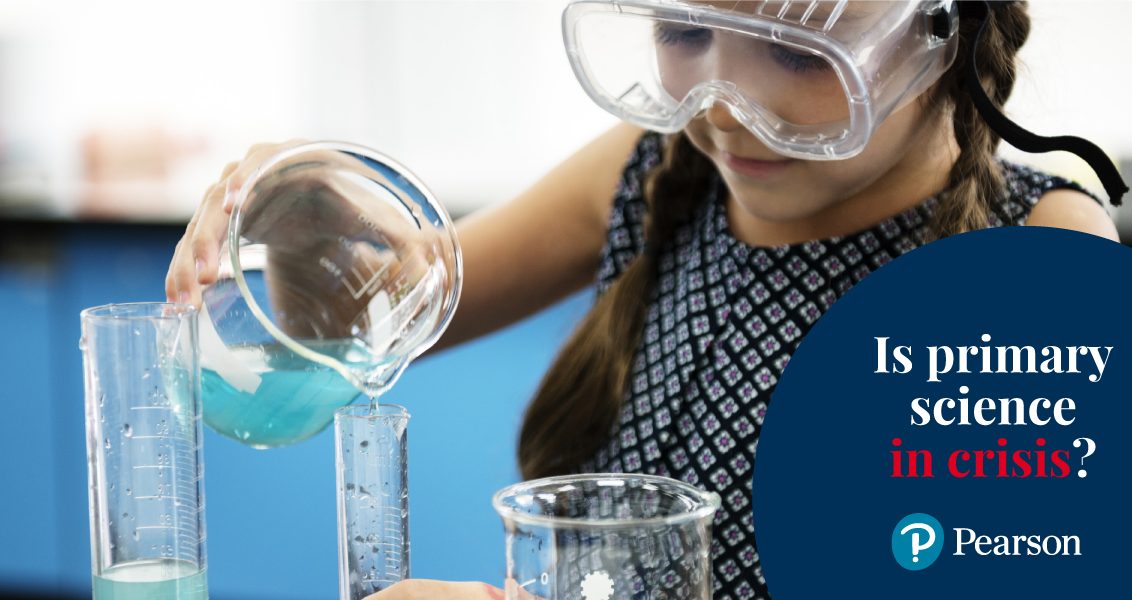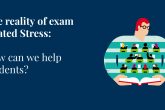
Deborah Herridge shares a personal view on the latest Ofsted in England research findings on Primary science.
It is certainly a truism in education that we assess what we value, and value what we assess. Since the abolition of the UK Key Stage 2 National tests in science (the SATs) in 2009, this has become even more apparent for science, the ‘Cinderella’ subject in the National Curriculum, pushed aside by the ‘ugly sisters’ of English and Mathematics.
Last month, February 2019, the UK Office for Standards in Education (Ofsted) published its findings on curriculum research in science and it was a disappointing read. Focusing on the woeful state of science curriculum design in English primary schools it raised many questions on how we should be implementing our science curriculum to best effect (read it here). It has taken Ofsted 10 years to realise what we all knew back in 2009, namely that treating science differently from English and Mathematics in the assessment stakes means that its status in school and its place in the curriculum would be diminished. A core subject in the curriculum still – but in name only!
Have the changes reduced the visibility of science in schools?
Back in 2009 I was the CPD leader in the UK National Network of Science Learning Centres, providing subject specific professional development to thousands of primary teachers. I still remember the rather sick feeling I had in my stomach when the announcement came that the science SAT had gone; not because I wanted 10 and 11 year old children to be under the pressure of examination but because I feared the consequences of reducing the visibility of science in schools. Many were delighted that what had become a burdensome reading comprehension test rather than a science test would no longer feature in their planning. Some teachers looked forward to teaching science without the pressure of such high stakes testing: “We can do some really interesting fun stuff now,” one science leader said to me. Ten years later the picture is not so optimistically rosy.
Ofsted Chief Inspector, Amanda Spielman has warned against the ‘teaching to the test mentality’ but has equally acknowledged that ‘what gets measured gets done’ and far too often what gets done is English and Mathematics. This is not news. The provision and status of science in primary schools has been eroded over the past 10 years and reduced to a ‘science week’; science is the subject that is covered by others in the teacher’s dedicated in-school planning time or diluted in content as part of ‘topic work’. Are we really surprised that there has been a knock-on effect on the development of how the UK science curriculum is delivered?
We still need scientists!
The failure of schools to deliver a robust and successful science curriculum promises far reaching consequences. Our economies need future scientists just as much as they need a literate and numerate population. We cannot continue to sideline science in primary schools. We cannot continue to give children a diet of low-level worksheets, ‘virtual investigations’ and ‘busy work’ science activities lacking any depth of knowledge or understanding. And we cannot afford to under-train our teaching staff or our beginning teachers. Science is just too important to fail.
The Ofsted report is a tough read for those of us in science education but it rings true for me. Much has been said about re-shaping the curriculum for the future, of looking again at how we value assessment data and of what ‘a good education’ actually means, but in the world of today and now, what is to be done?
Some commentators have suggested that the days of the generalist primary teacher are numbered and that teachers cannot be expected to be ‘experts’ in all of the curriculum subjects. We should have dedicated specialist science teachers whose subject knowledge is more advanced than that of their colleagues and they should do all of the science teaching they argue. That may sound an appealing idea for some but for me it would further de-skill teachers and chip away at the holistic principles and nurturing ethos of primary teaching that is so valuable in understanding the whole child.
It has even been suggested that science be taken out of the primary curriculum entirely and not taught at all until secondary school. Imagine that; what a waste of an opportunity to harness the wonderful, unfettered creativity and boundless curiosity of young children. Is that the broad and balanced curriculum schools are asked to provide?
How do we bring back the passion for science?
It is my view that we do not need to make massive changes to the curriculum, we do not need primary teachers to be experts in absolutely everything rather we need them to be experts in pedagogy in order to best develop and apply the curriculum we have. What we do need are passionate leaders who can support staff to access and use all of the quality resources and outstanding teaching materials that are already available to them. We need to invest in teacher subject knowledge and CPD and trust teachers to use their own ideas, passions, personality and style to bring the curriculum to life in a way that suits them.
All is not lost
There are many, many excellent individual practitioners in primary science and many schools who have innovative and creative science curricula and we in the UK can learn a great deal from our International colleagues in this respect. I was privileged recently to work with teachers in Dubai and Riyadh who were working with the Pearson science curriculum and using and building on the resources from our International Science Bug. It was heartening to see how enthusiastic, effective and fun their teaching was. There was a real creative buzz apparent and the children were totally absorbed, motivated to learn and engaged in pursuing their science investigations.
There are already outstanding resources and curriculum designs developed by publishers and organisations to support schools in teaching science (links to some below). Universities too are playing their part and many, including my own, have engaging and inspiring science programmes producing outstanding graduates and future science leaders who are bursting with enthusiasm and overflowing with great ideas.
So let’s not be downhearted, instead take up the challenge and show the world that primary science is not in crisis but is vibrant and effective and ready for the future!
Deborah Herridge is author of International Science Bug. To find out more visit our website or download your sample pack.
About the author
Deborah Herridge is head of science in Initial Teacher Education at the University of Northumbria. She is a science author and editor of Pearson’s International Science Bug, a curriculum designer and has worked as a teacher and CPD leader in the UK and internationally. All views are her own.
Links to resources and CPD mentioned in this post
- The supportive work of the Primary Science Quality Mark which has international reach http://www.psqm.org.uk has encouraged schools to examine and improve their science provision through a CPD based programme enabling subject leaders to inspire and develop their fellow teachers.
- The Primary Science Teaching Trust https://pstt.org.uk
- Association for Science Education https://www.ase.org.uk have numerous, excellent resources to inspire, educate and develop teachers’ subject and pedagogical knowledge.
- Science Bug International, from Pearson. Sign up for a free trial here

